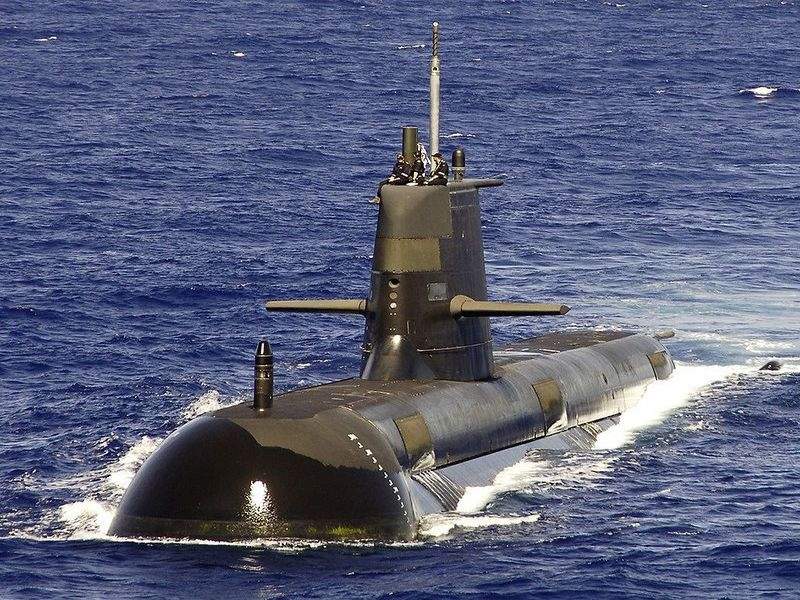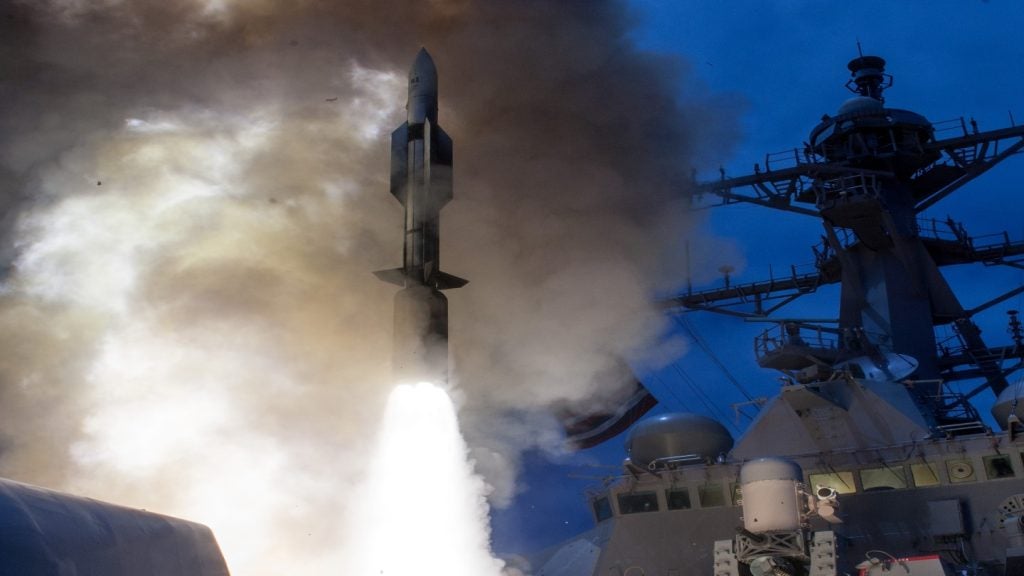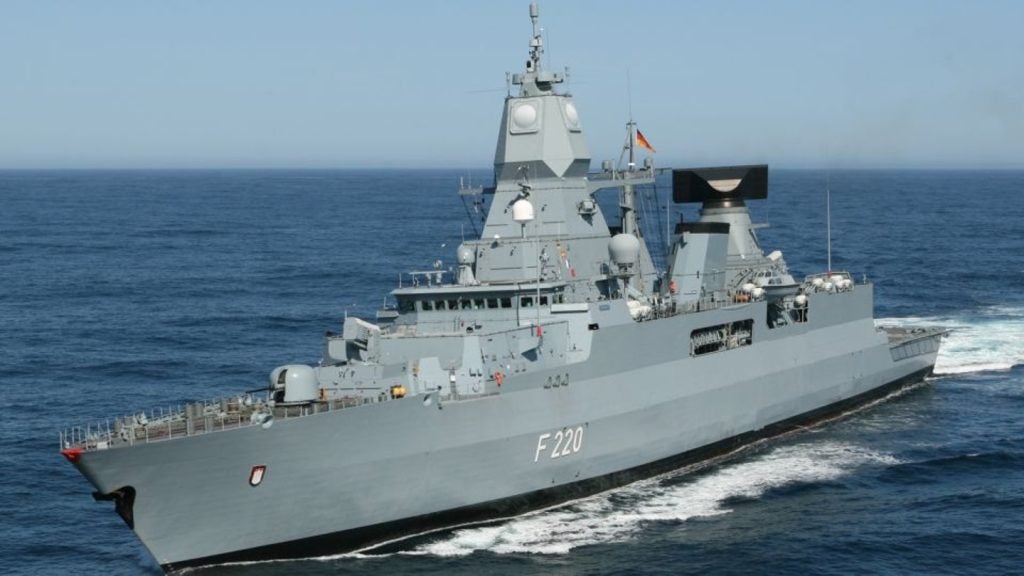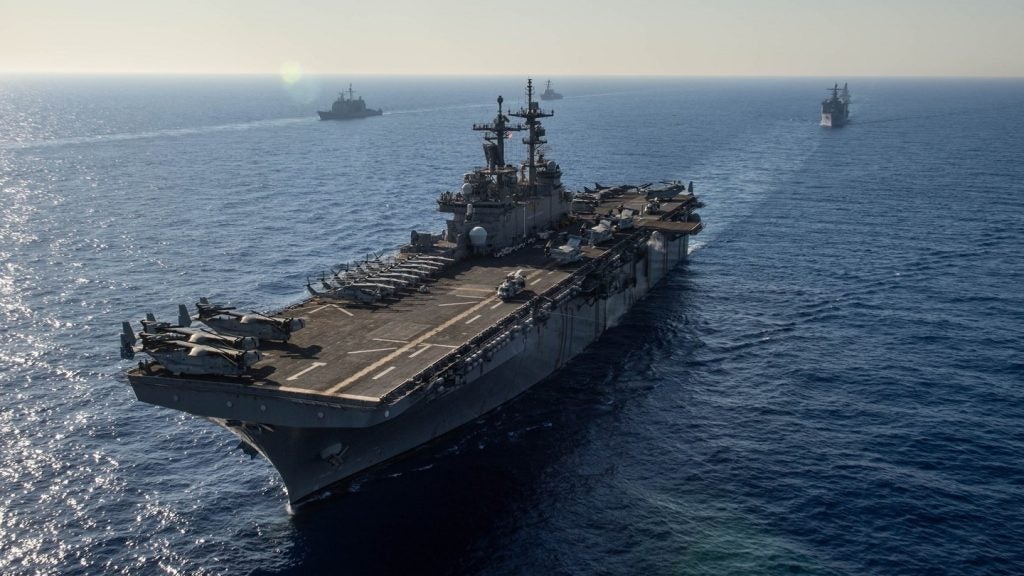
Australia selects France’s DCNS for $39bn future submarine project
Australia selected French shipyard DCNS for the $39bn contract to build a new fleet of 12 submarines in Adelaide.
For Australia's SEA1000 future submarine programme, DCNS competed with Germany's ThyssenKrupp, and Japan's Mitsubishi Heavy Industries and Kawasaki Heavy Industries.
DCNS's solution is claimed to be the world's most advanced conventionally powered submarine, and is currently in its pre-concept design stage. It was named after an indigenous species of the Barracuda, found in Australia's Great Barrier Reef.
North Korea claims successful hydrogen bomb testing
North Korea claimed to have successfully tested a hydrogen bomb, which if confirmed will bolster the country's nuclear strike capabilities.
Reports emerged that the testing triggered seismic activity of 5.1 on the Richter scale 49km away from the Punggye-ri site, in the North Hamgyong province.
A report on state TV said North Korea had launched a "miniaturised" hydrogen bomb, and that the test was a "perfect success."
How well do you really know your competitors?
Access the most comprehensive Company Profiles on the market, powered by GlobalData. Save hours of research. Gain competitive edge.

Thank you!
Your download email will arrive shortly
Not ready to buy yet? Download a free sample
We are confident about the unique quality of our Company Profiles. However, we want you to make the most beneficial decision for your business, so we offer a free sample that you can download by submitting the below form
By GlobalDataUK Parliament votes to renew continuous-at-sea nuclear deterrent
The UK Parliament voted in favour of the Trident renewal programme, estimated to cost £40bn, to replace four Vanguard-class submarines that carry nuclear warheads.
The House of Commons backed the renewal by 472 votes to 117, a majority of 355 votes.
The UK Royal Navy's four Vanguard-class submarines were planned to be decommissioned in 2022 as part of the Strategic Defence and Security Review (SDSR), but has been extended to 2028.
Fincantieri wins €4bn contract to build seven vessels for Qatar Navy
Italian shipbuilder Fincantieri signed a €4bn contract with the Qatari Ministry of Defence to construct seven new generation surface vessels for the Qatar Emiri Naval Forces.
Qatar chose Fincantieri over French rival DCNS for its naval modernisation plan, reported Navaltoday.
Under the contract, Fincantieri will build and deliver four more 100m-long corvettes, one amphibious landing platform dock and two offshore patrol vessels.
US Navy receives new $2.5bn Virginia-class submarine
The US Navy took delivery of the 13th Virginia-class submarine, Pre-Commissioning Unit (PCU) Illinois (SSN 786), ahead of its initial contract schedule.
The $2.7bn SSN-786 is the ninth consecutive Virginia-class submarine to be delivered early to the navy.
General Dynamics Electric Boat division delivered the nuclear-powered attack submarine four days ahead of schedule and within budget, SEAPOWER Magazine reported.
UK requests nine $3.2bn P-8A patrol aircraft from US
The US Defense Security Cooperation Agency (DSCA) notified Congress of the potential foreign military sale of P-8A patrol aircraft to the UK.
Under the estimated $3.2bn sale, the UK requested nine P-8A patrol aircraft, along with associated defence equipment, training and support.
Boeing was selected as the prime contractor for the sale. Additional contractors include ViaSat, GC Micro, Rockwell Collins, Spirit Aero, Raytheon, Telephonics, Pole Zero, Northrop Grumman Corp, Exelis, Terma, Symmetrics, Arnprior Aerospace, General Electric, and Martin Baker.
IAP wins position on US Navy’s $900m global contingency services multiple award contract
IAP Worldwide Services, a managing member of IAP-ECC, was awarded a position on the US Navy’s $900m global contingency support multiple award contract II (GCSMAC II).
The company is one of five firms granted a position on the indefinite-delivery / indefinite-quantity contract.
Awarded by the Naval Facilities Engineering Command, Pearl Harbor, Hawaii, US, the GCSMAC II has a base period and seven additional optional years.
First steel cut for UK Navy’s Type 26 GCS to take place in summer 2017
UK Defence Secretary Michael Fallon confirmed that the first steel cut for the UK Royal Navy’s next-generation Type 26 Global Combat Ship (GCS) will be held in summer 2017.
The Type 26 programme is a multirole warship development programme jointly undertaken by BAE Systems and the UK Ministry of Defence (MOD) to replace the navy’s Type 23 frigates.
Under the project, eight anti-submarine Type 26 GCSs will be built to focus on the three core roles of warfighting, maritime security and international engagement.
US Navy takes delivery of first Zumwalt-class guided missile destroyer
The US Navy took delivery of the first Zumwalt-class guided missile destroyer, USS Zumwalt (DDG-1000).
Designed for littoral and land attack operations, the multi-mission vessel surface combatant will provide independent forward presence and deterrence.
US Navy Zumwalt commanding officer captain James Kirk said: "Zumwalt's crew has diligently trained for months in preparation of this day and they are ready and excited to take charge of this ship on behalf of the US Navy.
"These are 143 of our nation's finest men and women who continue to honour admiral Zumwalt's namesake with their dedication to bringing this ship to life."
US Navy could install electromagnetic railgun on its new Zumwalt-class destroyer
The US Navy is reportedly considering options to install an electromagnetic railgun on its third Zumwalt-class ship, Lyndon B Johnson (DDG-1002), currently being constructed at General Dynamics' Bath Iron Works (BIW).
Developed by BAE Systems, the railgun uses an electromagnetic force known as the Lorenz Force to launch a projectile at six or seven times the speed of sound.
Launched at high velocities to achieve greater ranges than conventional guns, the guided projectile maintains enough kinetic energy to eliminate the need for a high-explosive payload when it reaches its target.







